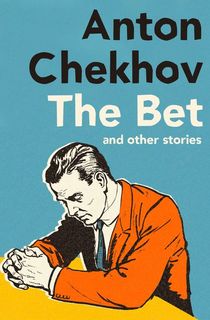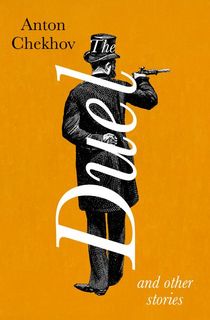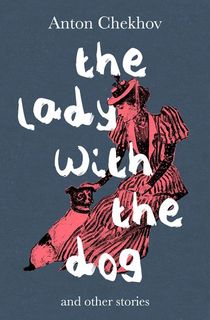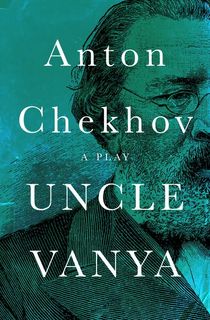Born in 1860, Anton Chekhov was a Russian playwright and author of short stories whose work is often considered to be some of the best that short fiction has to offer. In fact, his writings are so influential that the popular phrase “Chekhov’s gun”—a term used in theatre and other media to refer to the principle that everything in a work must be absolutely necessary and of use—was birthed from a series of his letters.
What is lesser known than this guiding dramatic principle is the fact that Chekhov’s main career path was in medicine, and his passion and talent for literature was merely his “mistress”—or that as a medical student, Chekhov had fun submitting humorous stories to magazines under silly pseudonyms such as Man Without a Spleen.
Chekhov’s early life was one of struggle and desperation. He grew up in Taganrog, a south Russian port city, as the third of six children living under the rule of an abusive father. While Chekhov’s father, Pavel, was a strictly devout Orthodox Christian who led the parish choir, his violence wore away at his children and wife—leaving many today to believe that he is in fact the inspiration for Chekhov’s many literary takes on hypocrisy in his work. However, it is said that Chekhov’s mother, Yevgeniya, was a wonderful storyteller who fueled Chekhov’s own passion for writing.
After Pavel led Anton and the rest of his family to bankruptcy, poverty, and emotional turmoil, Anton was left to pay his own way through school with a series of odd jobs from tutoring to catching goldfinches. It was during this time in 1878, right before entering medical school a year later, that Chekhov began his first foray into serious writing with an untitled (and now posthumously published) play commonly referred to as Platonov. What followed was more than 500 short stories and novellas as well as some of the most seminal plays in history.
Related: Short Story Collections That Belong on Every Novel Reader’s Shelf

A young Anton Chekhov in country clothes.
Photo Credit: Public DomainIn the mid-1880s, Chekhov was balancing great personal illness and growing success. Chekhov was weakened with tuberculosis, and even as he coughed up blood, he was unwilling to divulge his ailment to others. However, at the same time, Chekhov was also writing for one of Russia’s most popular newspapers. And while the money from this endeavor was sorely needed due to the fact that Chekhov often worked as a physician free of charge for the impoverished, his work at the paper also brought him attention that would launch his literary career.
Chekhov was soon approached by an acclaimed 19th century writer, Dmitry Grigorovich, who, after reading the short story “The Huntsman,” proclaimed to Chekhov that he had real and genuine talent. Under Grigorovich’s guidance, Chekhov went on to publish the short story collection At Dusk, which won the prolific 26-year-old the highly distinguished Pushkin Prize in 1888.
Of course, Chekhov’s illness couldn’t be ignored. A year before nabbing his impressive award, Chekhov took a trip to Ukraine to recover from his sickness and the fatigue of over-extending himself through work. It was this journey that inspired his novella The Steppe, which followed the travels of a young boy sent off to live away from home. It’s this work that many consider his major step forward into mature and poetic writing.
From here Chekhov pushed forward into a stream of endless writing. He produced notable short stories like “Sleepy,” “The Bet,” “Gusev,” and “Ward No. 6.” He continued to draw from personal and philosophical experience, commenting on social and moral issues.
In 1891, Chekhov penned the novella The Duel. This nuanced work is credited to have been inspired by regular meetings Chekhov had with Vladimir Wagner, a well-known writer and zoologist. This novella grapples with matters of compassion and religion versus evolution and efficiency. It touches on the foibles of fickleness and greed, as well as the healing of personal growth.
Later in 1899, Chekhov wrote what is perhaps his most famous short story, “The Lady With the Dog.” The story follows the tragic and strained four-part love affair between a man and a younger woman who are both unhappy in their separate marriages. This work rests on the heartbreak of two people who have found a real and consuming love too late for it to resolve in an easy and happy conclusion.
Many who read this tale attribute the tender representation of the love between the characters to be a reflection of Chekhov exploring his budding romance with the woman who would become his wife in 1901. However, many also see a self-awareness in the tragedy of the story, as he lost the battle against tuberculosis in 1904, marking his love story as another that came too late in his life.
However, before Chekhov’s untimely end, the last few years of his life consisted of a re-ignited passion for playwriting. Chekhov’s play four-act play Uncle Vanya was first produced in 1899, and follows an old professor, his much younger wife, and the affections, tensions, and jealousies that brew between the three other inhabitants of the couple’s rural estate. While Uncle Vanya is one of Chekhov’s most major works, the final years of his life also produced Three Sisters and The Cherry Orchard.
Anton Chekhov was only 44 years old when he died, expiring peacefully at the side of his wife Olga in a German spa town. While he might have died too soon, he left behind a towering mountain of works that constructed an undeniably fascinating legacy. His plays influenced schools of theatre writing and acting in ways that are still celebrated today. His short stories inspired writers like Leo Tolstoy, Katherine Mansfield, and Ernest Hemingway. In fact, his Chekhov’s very own life and death was the inspiration behind works like Raymond Carver’s “Errand.”
Chekhov’s work is still being celebrated, produced, and adapted today. And how could they not be? Drawing from real and raw experiences of pain, struggle, hypocrisy, and love, Chekhov molded stories which were honest reflections of society and humanity. Of course, while he reflected the world around him, Chekhov never could have imagined just how deeply he was influencing it.




